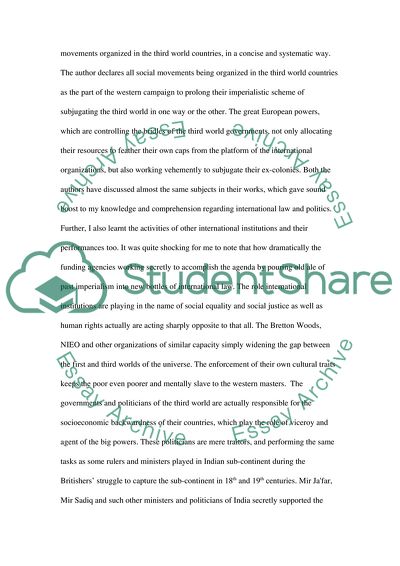Cite this document
(Development, Social Movements and Third World Resistance Assignment, n.d.)
Development, Social Movements and Third World Resistance Assignment. https://studentshare.org/social-science/1707775-opinion-pieces
Development, Social Movements and Third World Resistance Assignment. https://studentshare.org/social-science/1707775-opinion-pieces
(Development, Social Movements and Third World Resistance Assignment)
Development, Social Movements and Third World Resistance Assignment. https://studentshare.org/social-science/1707775-opinion-pieces.
Development, Social Movements and Third World Resistance Assignment. https://studentshare.org/social-science/1707775-opinion-pieces.
“Development, Social Movements and Third World Resistance Assignment”. https://studentshare.org/social-science/1707775-opinion-pieces.


